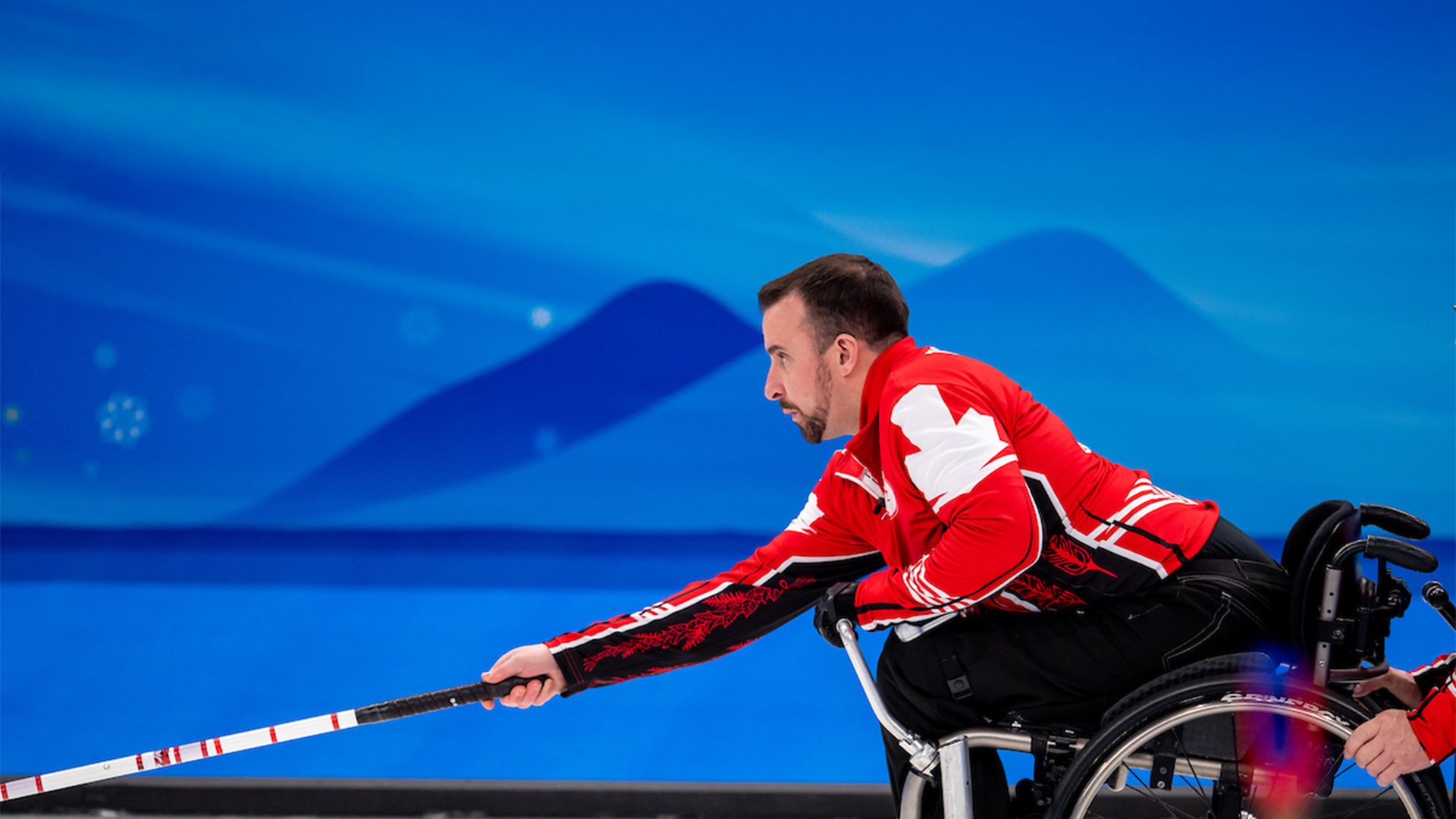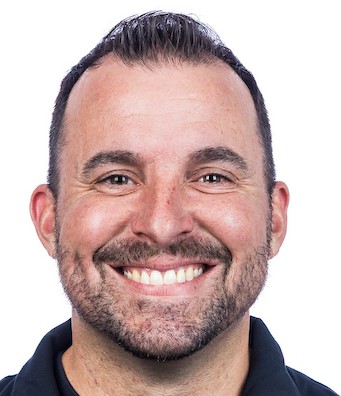

Birthdate
February 3, 1984
Hometown
Dunsford, Ont.
Residence
Dunsford, Ont.
Sport
Wheelchair curling
Experience
Milano Cortina 2026
Beijing 2022
Jon Thurston is the eagle-eye on Canada’s wheelchair curling team. He shoots fourth for skip Mark Ideson and his precision and grace under pressure have produced some remarkable wins for Canada.
Thurston competed at his first Paralympic Games in 2022 as Canada won the bronze medal continuing its amazing streak of being on the podium at every Games since the sport was added to the program in 2006.
He’s also been on the last six world championship teams earning silver in 2020, 2023, 24 as well as bronze in 2025.
Thurston earned his spot on the team of veterans following a two-day skills-based shootout in Moose Jaw in January 2019.
Usually on a curling team, it’s the skip that shoots last. But Team Canada skip Mark Ideson, noticing Thurston’s marksmanship, decided to put his young protégé in the pressure situation.
Thurston was contacted about wheelchair curling after a coach saw an article the local newspaper had written about Thurston on his recovery after his injury. Carl Rennick was coaching a competitive wheelchair team that was looking for a fourth player at the time. He got Thurston out to throw a few rocks in August 2012 and he decided to try the sport for a season.
In 2017, Thurston was selected as an athlete for the Team Canada NextGen Program and was then selected to Team Canada in 2019.
Besides wheelchair curling, he is one of Canada’s top water skiers with a disability. He is also an archer, boxer and does some Jiu-Jitsu. In archery one of his instructors is none other than retired five-time Paralympian Alec Denys.
CAREER HIGHLIGHTS
2022 Paralympic Games… 2019, 2020, 2021, 2023, 2024, 2025 World Championships
PERSONAL
In 2008, Thurston had a work injury that left him paralyzed. He was working construction and during an unexpected storm the building he was in collapsed. As he was running out the building, part of the building collapsed on his back… Started wheelchair curling in 2012…
NOTABLE INTERNATIONAL RESULTS
2025 World Championships – 3rd
2024 World Championships – 2nd
2023 World Championships – 2nd
2022 Paralympic Games – 3rd
2021 World Championships – 5th
2020 World Championships – 2nd
2019 World Championships – 10th
1
"*" indicates required fields